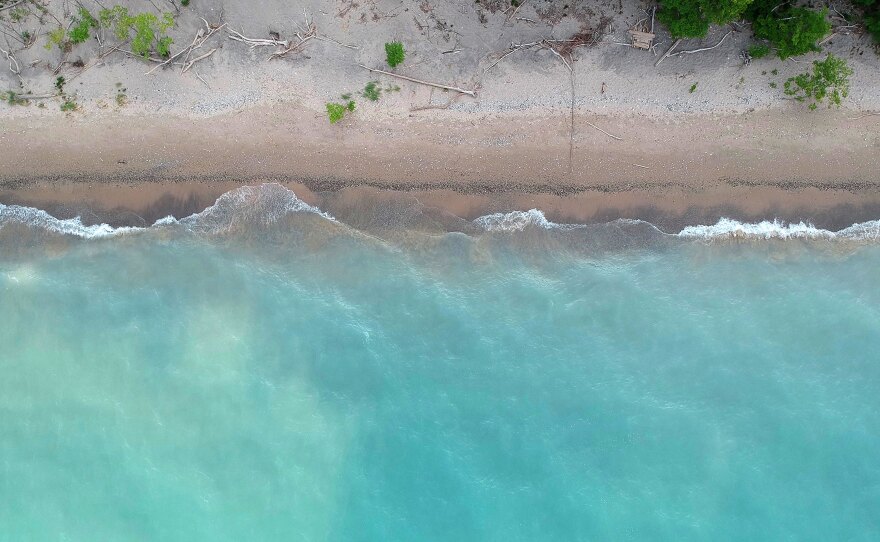Nanomaterials are miniscule particles made of various chemicals that are incorporated into products like cosmetics, medicine and food. They’re also constantly shed into our environment, including our rivers and lakes. How do these nanomaterials affect organisms that live in Lake Michigan and the Great Lakes ecosystem?
It’s one of the many topics under the microscope at UWM’s School of Freshwater Sciences, which is the only such school of its kind in the United States. Rebecca Klaper is vice dean and a professor. On this episode of Curious Campus, Klaper discusses her research into nanomaterials and building safer chemicals to help protect plants, fish, algae and other organisms that call the Great Lakes home.


